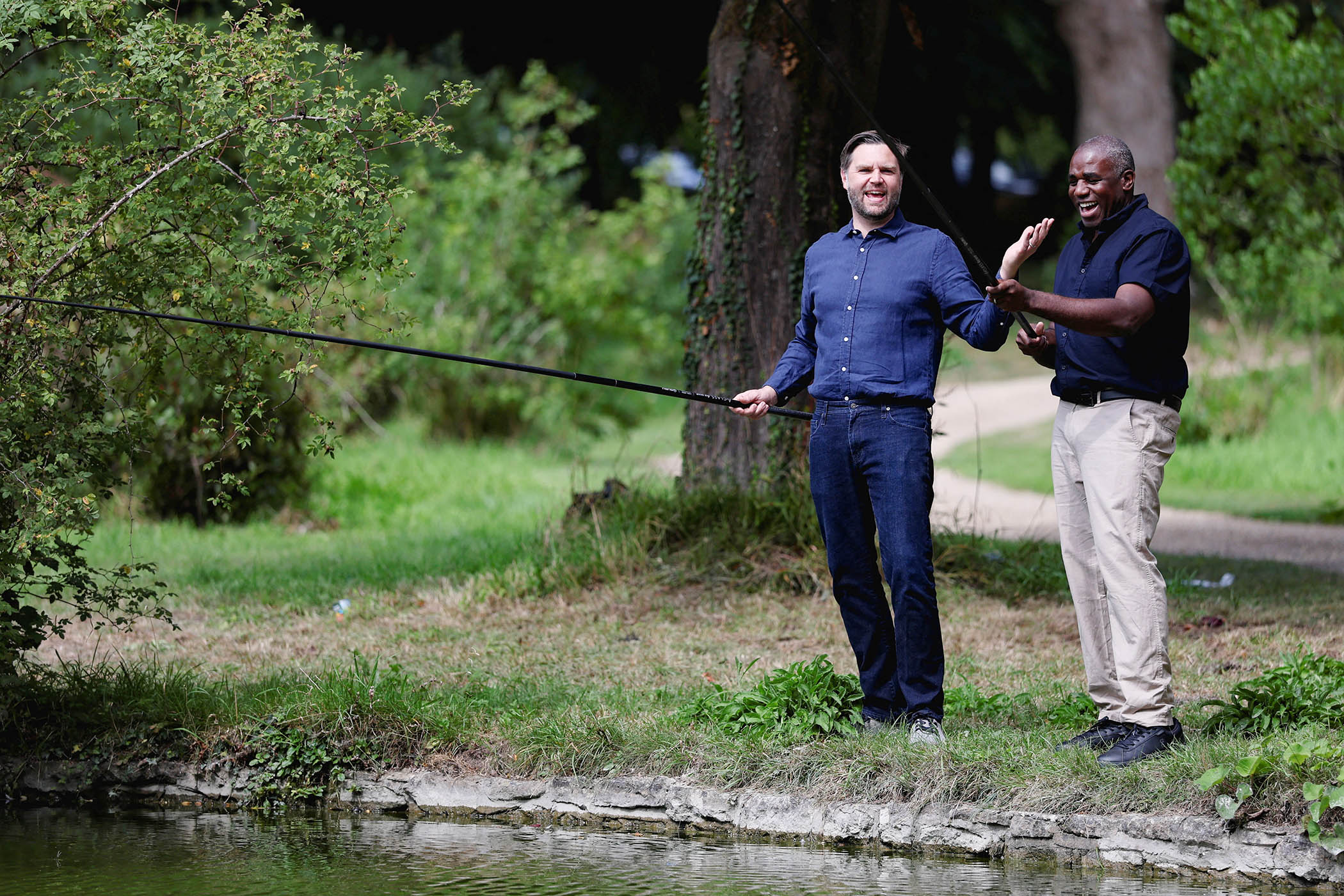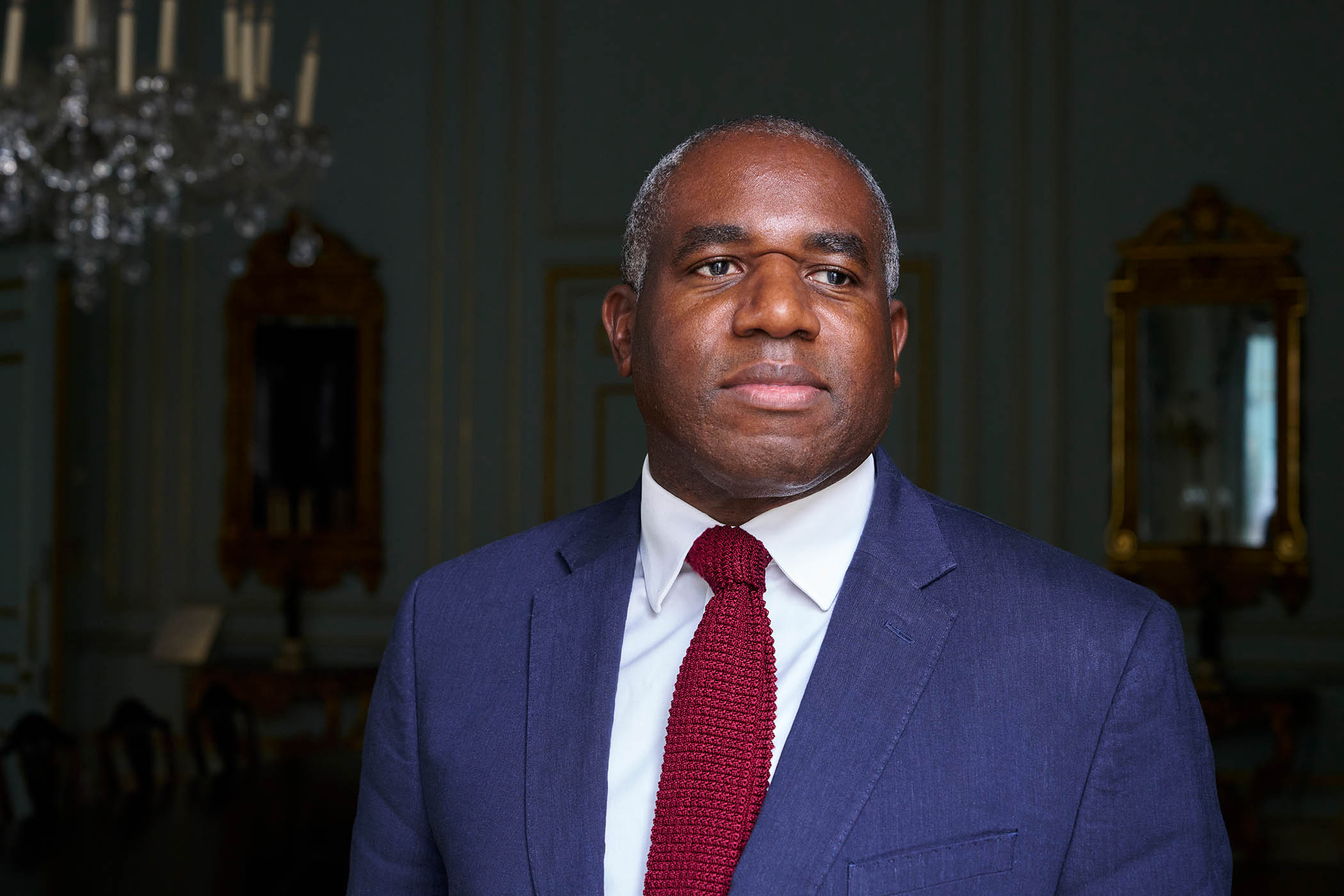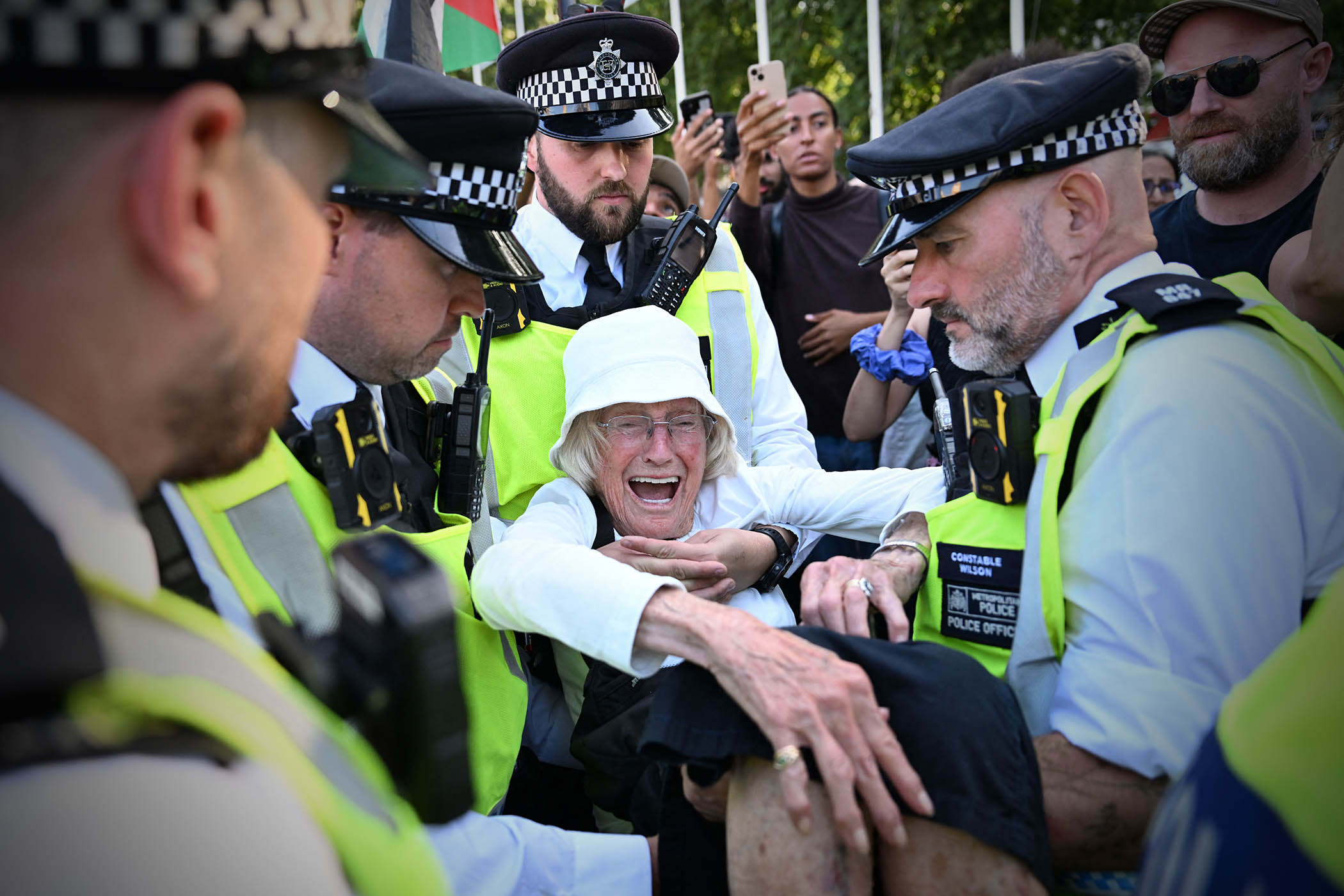Portrait by Suki Dhanda for The Observer
David Lammy was working in his new office at the Ministry of Justice when far-right agitator Tommy Robinson led about 150,000 of his flag-waving followers down Whitehall. As the deputy prime minister looked into the crowd, he felt deeply anxious.
“The troubling side of it was that some of the folk I saw did not appear to look like the kind of bovver boy National Front folk that I grew up with. There were aspects of the gathering that appeared to be ordinary people who had joined up with something,” he says.
The social and demographic mix was not the only concerning issue for the former foreign secretary. “I’m also aware that there are external countries like Russia manipulating algorithms, using chatbots and other instruments to stir conflict and division in our country – and that worries me greatly,” he says “I do know that there have been events in Britain where it’s very clear that our authoritarian opponents have sought to stir and have sought to encourage division.”
As Labour gathers for its conference in Liverpool this week, the stakes could not be higher. Keir Starmer, fighting for his leadership, is seeking to frame politics as a “battle for the soul of the country”, a defining struggle between toxic division and mainstream decency.
For Lammy, it is personal. His parents were immigrants who came to the UK from Guyana. As a child in Tottenham, north London, in the 1970s he was all too aware of bubbling racial tensions.
“It was the era of Daley Thompson, Fatima Whitbread and Linford Christie wrapping themselves in the flag and the joy you felt at these wonderful athletes achieving so much,” he says. “But I also hold in my mind's eye being spat at by skinheads and a bottle being thrown at my mother, my sister and me by a racist at Camden Town tube station. There was a real fear.”
He was 12 when he was stopped and searched by the police for the first time. “It was embarrassing, it was scary – I wet myself. I think we all know that there have been rogue police officers behaving inappropriately.”
The justice secretary does not want to say the country is going backwards. His wife, the artist Nicola Green, is white. They have two sons and an adopted daughter. “The fastest growing ethnic minority group look like my children. Black, white, brown people are falling in love and having babies. But I recognise that, in the same way that I was scared, there are a lot of communities who see these big marches and are quite scared.”
He avoids “the sewer” of social media. “It’s too toxic,” he says. “I see the way that Tommy Robinson and others play on a kind of grievance. There’s very little that seems to be constructive.” Nigel Farage, meanwhile, is characterised by “emptiness and vacuity”.
Newsletters
Choose the newsletters you want to receive
View more
For information about how The Observer protects your data, read our Privacy Policy
‘If you’re looking to me to pick fights with Trump, that is not what is going to improve the lot of our country’
‘If you’re looking to me to pick fights with Trump, that is not what is going to improve the lot of our country’
David Lammy
Yet Reform UK is consistently ahead in the polls and some Labour MPs are agitating for the prime minister to be replaced by Andy Burnham, the Greater Manchester mayor. “We’ve got to steady our nerves… and demonstrate tangible results to people,” Lammy says. “Andy’s a friend of mine. I’ve seen the speculation, but he’s not currently in Westminster. He’s in Manchester doing a great job.”
Lammy points to the way in which Mark Carney in Canada and Anthony Albanese in Australia turned around the polls. “All our progressive friends find themselves written off and then come back to win.”
But both these leaders won a huge boost by standing up to Donald Trump. As a backbencher, Lammy described the US president as “deluded, dishonest, xenophobic, narcissistic”. Now he champions a philosophy of “progressive realism” that means rolling out the red carpet for Trump. “I’m not sitting around a north London dinner table,” he says.
“My job is to be deputy prime minister, so if you’re looking for me to pick fights with Donald Trump, that is not what is going to improve the lot of our country.”

Lammy, 53, is unapologetic about his close relationship with the US vice-president. “I’m able to find common ground. With JD Vance, we are both religious, we both come from very poor working-class backgrounds. I find him intellectually curious. You can disagree but still enjoy each other’s company.”
As deputy prime minister, Lammy will continue to play a role on the international stage. Last week, he was at the UN general assembly in New York when the UK recognised Palestine. As foreign secretary, he suspended some arm sales to Israel – “my judgment was: there is a clear risk that Israel has breached international humanitarian law” – but he will not say whether he thinks genocide is now occurring in Gaza. “That is an issue for lawyers.”
He clearly misses the Foreign Office but he is also determined to make the most of his new role. “Justice is a theme that’s run through my political career.” He found himself in tears just a few days into the job, when he met bereaved families to discuss the Hillsborough law, which places a legal duty on public officials to tell the truth during investigations into such disasters. “My friend Khadija Saye died in Grenfell Tower and this was a huge moment in which power has been given to those people to fight back for justice.”
Lammy has inherited a crisis in the prisons and a record backlog in the courts in England and Wales. He thinks sentencing reform is essential. “I’ve seen too many prisons where young men on short sentences are exposed to hardened criminals. Almost two-thirds of [ex-offenders] are going back to prison so something isn’t working.” Brian Leveson, a former judge, has also recommended radical changes to the courts that would mean thousands of defendants losing the right to a jury trial.
Lammy has long been a passionate defender of the jury system but now he is convinced the scale of the problem means change is required. “What’s uppermost in my mind is victims waiting years for justice,” he said. “Justice delayed is justice denied.”
Lammy’s father, an alcoholic, had a furious temper and he witnessed domestic violence as a child. Sometimes he would hide in his bedroom with his hands over his ears trying not to hear his parents fight. When he was 12, his father moved out. “He left a gaping hole,” he says. “When you lose a parent, whether it’s because they die young or they’re absent, of course it’s not easy. But I still love him. He had his problems and he had his issues, particularly with alcohol, but I know he loved me and I know he loved my siblings.”
Statistically, children growing up with domestic violence, addiction and family breakdown are more likely to end up in the criminal justice system. Instead, Lammy went to law school, became a barrister and in 2000, at the age of 27, was elected as what back then was Britain’s youngest MP. Now he is deputy prime minister.
What saved him?
“I had a phenomenal mother. I have phenomenal aunts and uncles and cousins, siblings and I had a lot of great mentors – who did not look like me, by the way – teachers, youth workers, who wanted to support me to succeed. Despite the odds, you will always find people, if you can reach them, who want to help you fill those gaps.”
Lammy says the cabinet is full of people who, like him, have overcome adversity. “If you don’t know where you’re from, you don’t know where you're going,” he says.
He adds: “There are a lot of people around that cabinet table who know exactly where they’re from. These are people from families that look like the country.
“There are hard knocks in their story. You bring that to work and try to improve the lot of folk.”
Other picture by Suzanne Plunkett/WPA Pool/Getty



